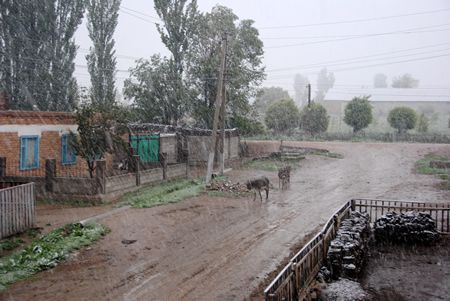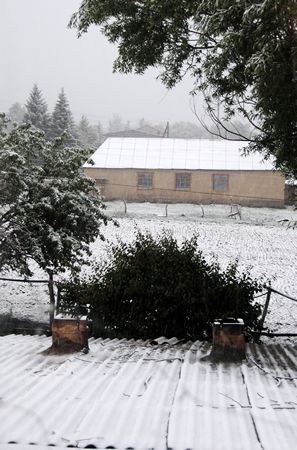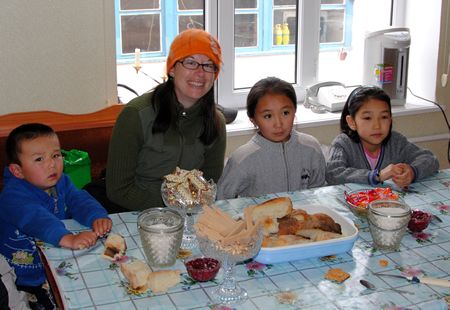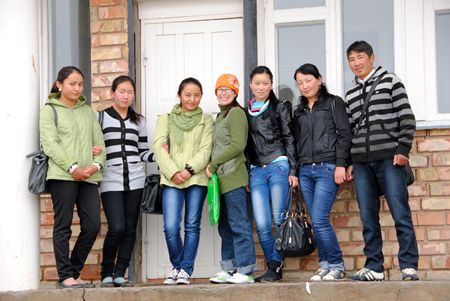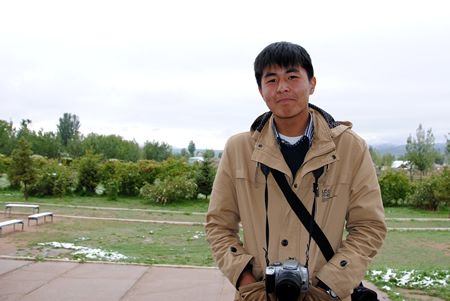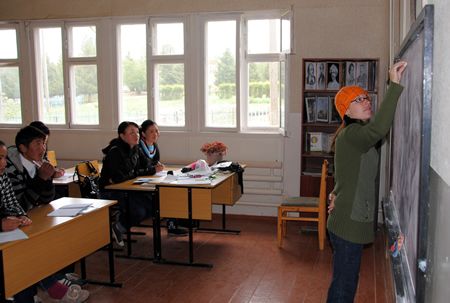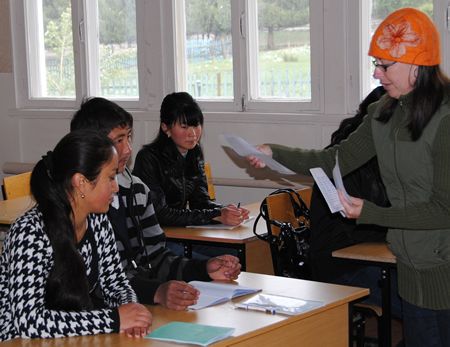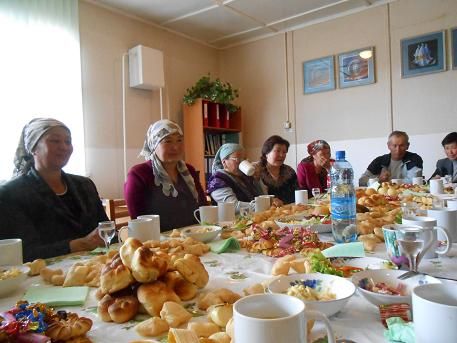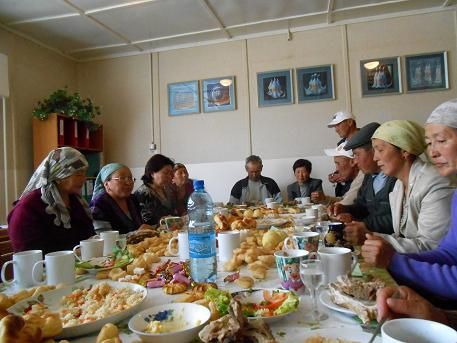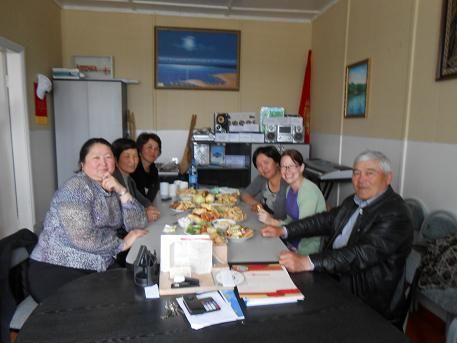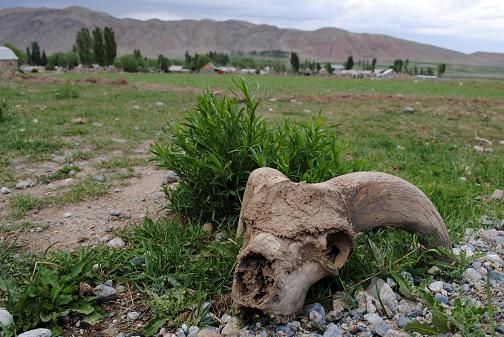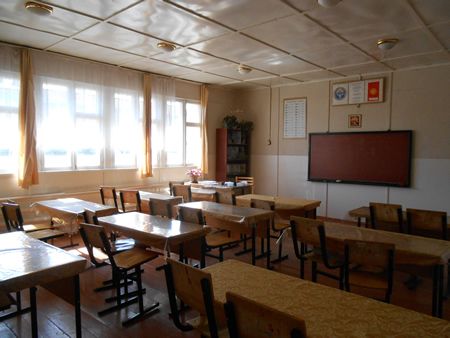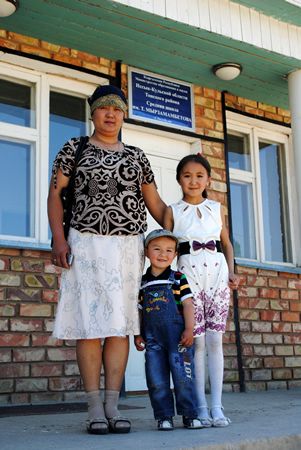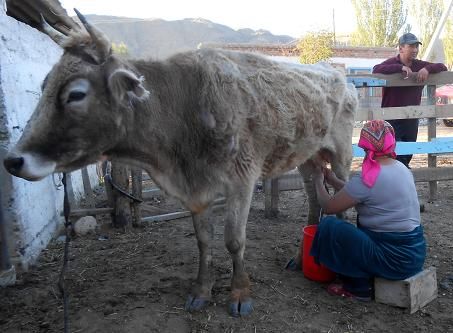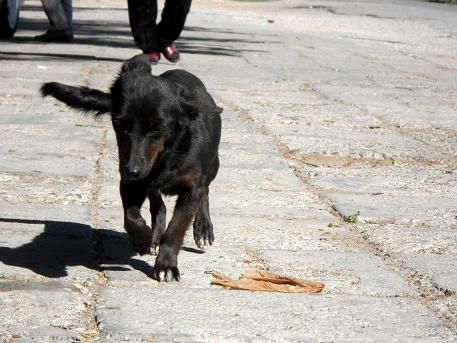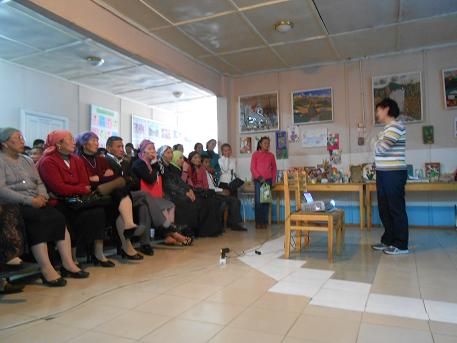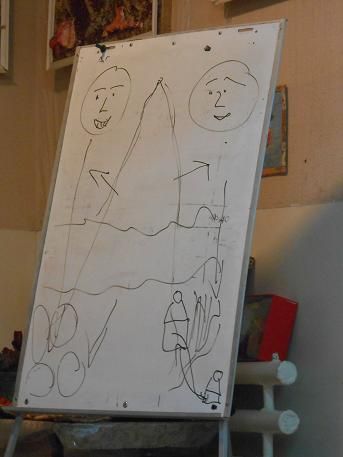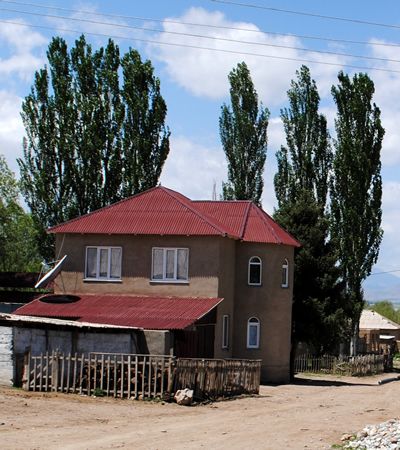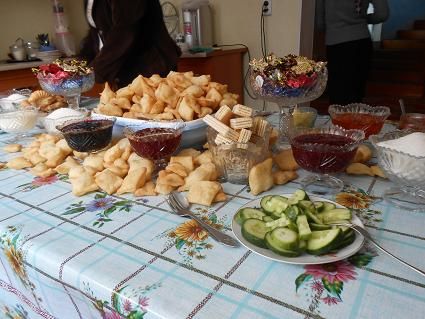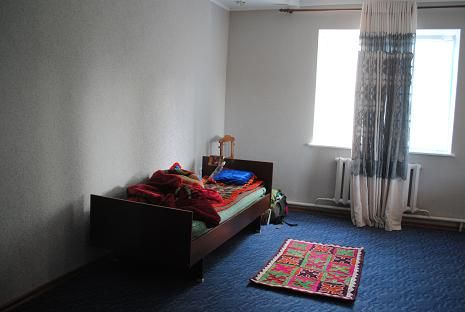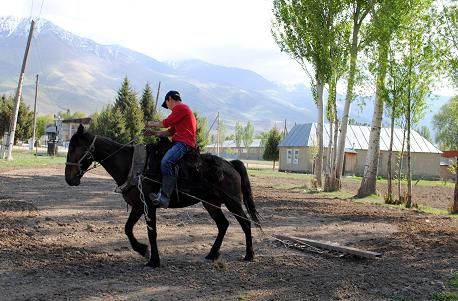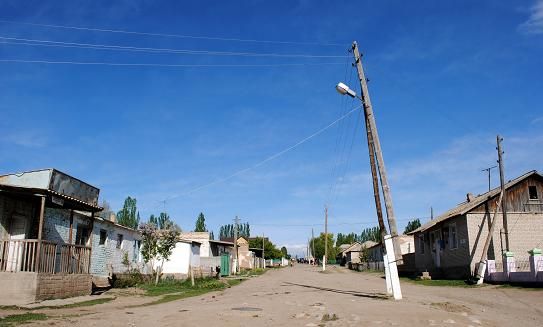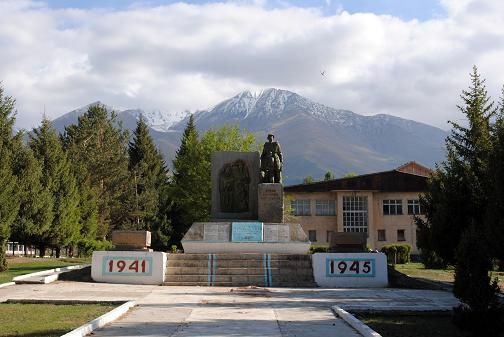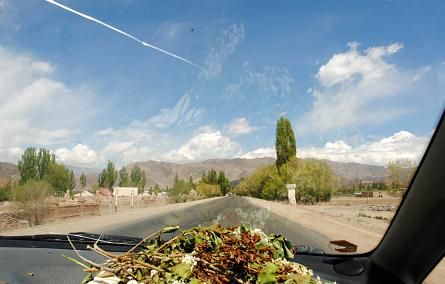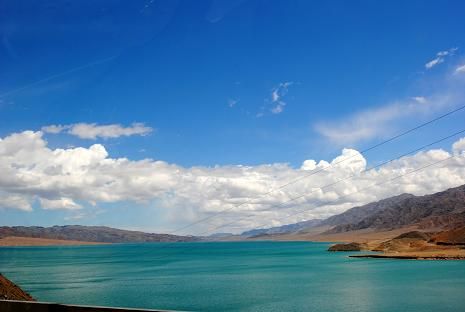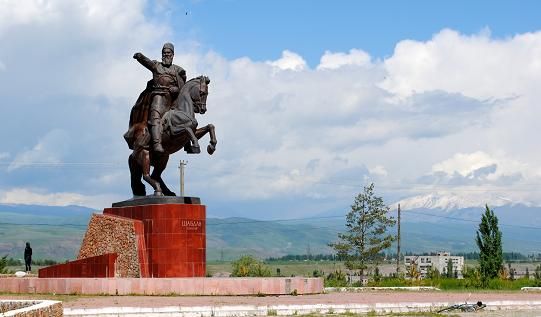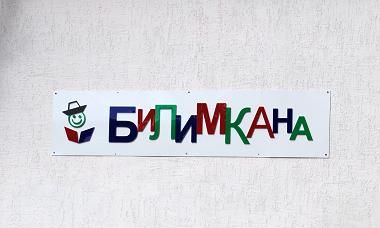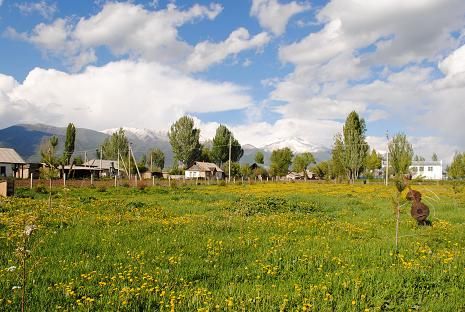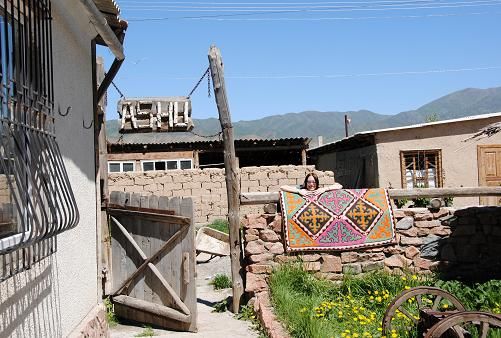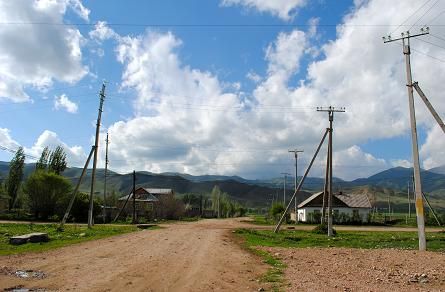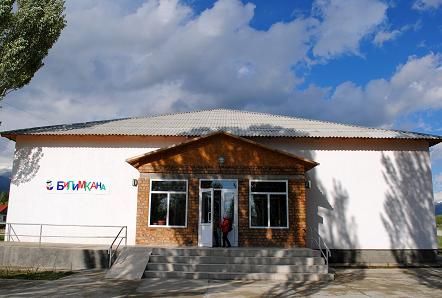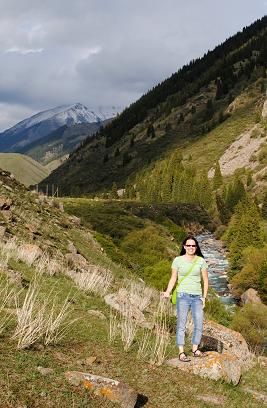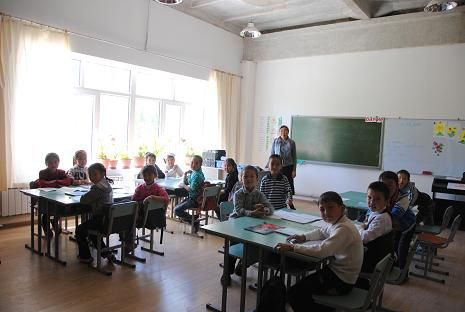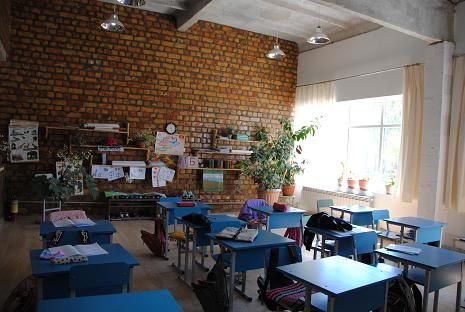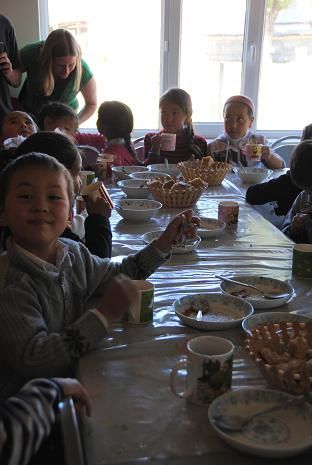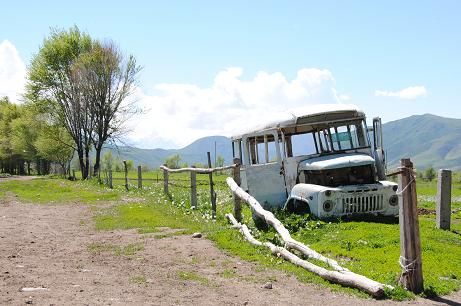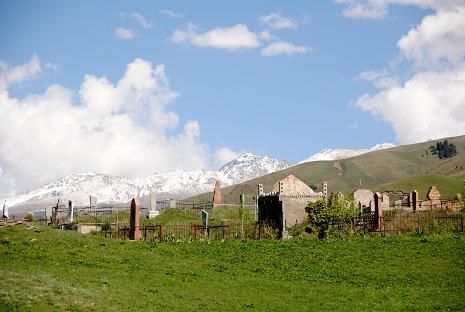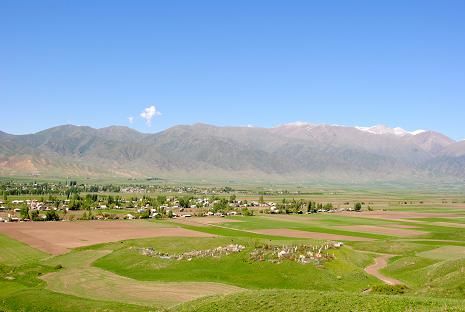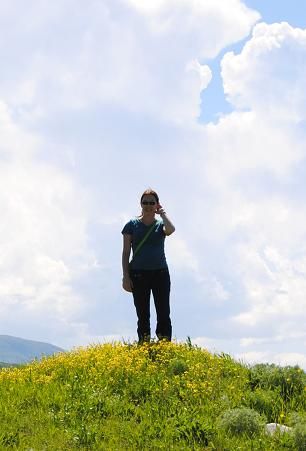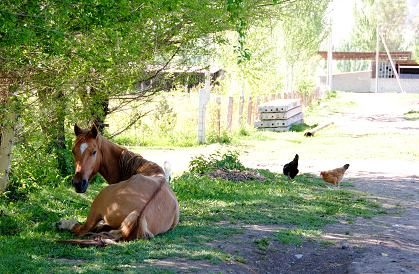May 31, 2013
Yesterday was unbelievably
surreal, although it started off normally enough. My lesson with Group 1 (med-
to high- beginners) focused on a review of things I was pretty sure most of
them already knew: different ways of greeting people in different situations,
followed by questions one might ask while getting to know someone. In this way
I was able to learn that every single one of my students in this class has
multiple siblings. Every single one. (I can’t imagine being pregnant once, much
less multiple times, much less in the land of squat-toilets.) We then spent
some time discussing what they do in the morning, in the afternoon, and in the
evening. I learned that the standard question of, “What do you like to do in
your free time?” has very different connotations here. These kids don’t have
all that much free time. If they’re not doing homework, they’re usually helping
their mothers cook or clean, taking care of younger siblings, or helping their
fathers with their farm animals. Relaxing in front of the TV (if they have a TV
at all, which not all do) is generally done around 9pm, while they’re eating
dinner. We discussed phrases like, “milk the cows” and “shear the sheep” – very
different phraseology from that featured in the Bishkek-centric textbooks from
the London School!
With Group 2, I focused on greetings,
followed by numbers and the question “How many _____________ are there?” I
taught them the words for the shapes circle, star, triangle, and square, as
well as the colors red, blue, black, purple, and green. Those colors just so
happen to be the colors of the white-board markers I’d brought with me. I’d
also brought along a mini white-board. Using said mini-whiteboard, I drew a
variety of shapes, and had my students identify first how many stars (etc.)
there were, followed by how many blue (etc.) stars there were, and so on.
In both classes the students
continued to be incredibly enthusiastic. I don’t think I’ve ever taught
students who were that excited to be in an English class before. We sang Hello, Goodbye again in both classes,
and many of the students had already memorized the lyrics!
I had expected to do the
same activities with Group 3 (after lunch) as I had done with Group 2. Instead,
I returned to the school to a bit of a surprise: the building was locked, and
the only people who were around were my students. Several of the boys tried
various windows, and one even fished some nails out of his pocket and tried
(unsuccessfully) to pick the lock to the school’s front door. Since Rakhat
works at the school, and since her son Nursultan was in this class, I sent him
off to see if his mom could round up a key to the building.
Now, if I’d had all of my
things with me, we could have simply had class outside. Unfortunately, while
I’d popped my ipod and portable speaker in my purse when I left for lunch, I’d
left everything else in my classroom. I figured that while we were waiting for
Nursultan to return, we could listen to Hello,
Goodbye. I was impressed to discover that in this class as well, students
had made their own copies of the text (I hadn’t asked them to do so) and many
had memorized the lyrics. We sang the song twice before Nursultan returned with
the news that class had been canceled for the day.
All of the students were
visibly disappointed by this news. As such, I asked them if they wanted to have
class outside, and the answer was a resounding YES! Of course, at that point
I’d already exhausted the only resource in my possession (the ipod), and
creating a lesson outside, on the fly, with no resources was rather a
challenge. As with the other two classes, we practiced greetings. We then
practiced colors (using the colors of their clothing), and then – using a stick
(!!!!) – I drew stars, circles, triangles, and squares in the dirt and sort of
recreated the lesson that I had done with Group 2. I then had the students stand in a circle. We
practiced counting in a round (to 100) and then drilled days of the week and
months of the year. At that point we’d managed to fill the entire hour, so I
played Hello, Goodbye one more time
and sent them on their merry way.
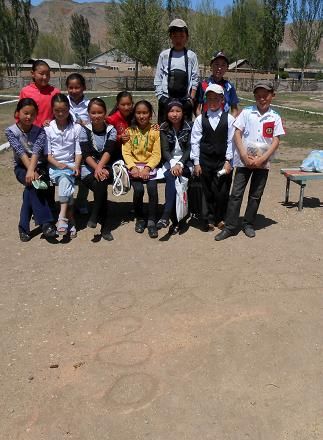 Group 3 at the end of our outside class. You can see circles, a star, a triangle, and a square etched into the dirt.
Group 3 at the end of our outside class. You can see circles, a star, a triangle, and a square etched into the dirt.
I returned home to learn
that the director of the Myrzamambetova Public School had invited us over to
her house. I was expecting tea and a chat… and as such was wholly unprepared
for what I was walking into. The director had thrown a huge party to celebrate
the end of the school year, her daughter’s graduation from high school, and (no
doubt as an afterthought, given my sudden arrival) my presence in the village.
Rakhat and I were among the last to arrive, so I walked in, expecting a quiet
tea to discover two lengthy tables, laden with food and surrounded by people.
Nearly all of the teachers from the school were there. Most of them were women
(I believe we had around five men in attendance, in addition to the director’s
husband and son). I ended up seated next to the school’s Russian teacher (the
Myrzamambetov Public School is one of the few rural public schools to still
have Russian available). This was fortunate, as it gave me someone to talk to –
although as I had rapidly grown accustomed to being a better speaker of Russian
than pretty much everyone with whom I spoke here in Toguz-Bulak, I suddenly
felt self-conscious, being placed next to the one person in the village whose
Russian was substantially better than mine.
The table was topped with
tons of boorsook, jam, and candy, as well as tea and juice and salads. Within
seconds of sitting, I had tons of salad heaped onto my plate, which I
diligently worked my way through before realizing that it was the first of
something like seven courses. No kidding. There were also rounds and rounds of
toasts. Luckily as some of those present were teetotalers, while others (like
me) were only moderate drinkers, toasting with juice or wine instead of with
vodka was considered an acceptable option. I toasted with white wine, and as
such did not become intoxicated. (If I’d had to knock back the hard stuff, I
would have been unconscious halfway through; this shindig went on for a long
time. And let me just say that the manner in which the middle-aged teaching
staff of the Myrzamambetov Public School could knock back the vodka was pretty
damn impressive.)
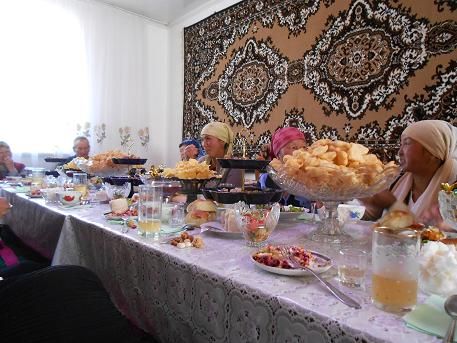
Several times we went
outside between courses to dance. Apparently the most popular song of the
moment in the tiny, rural, Kyrgyz village of Toguz-Bulak is Gangnam Style,
which we must have listened to at least thirteen times (no exaggeration!). The
first time it came on, it was rather surreal… by the end of the evening I was
starting to feel like I had somehow gotten stuck inside of one of the endless
number of parodies of PSY’s worldwide hit.
It wasn't all PSY. There was a lot of singing in Kyrgyz as well.
The meal’s main course was
beshbarmak, which literally translates to “five fingers” in Kyrgyz, as it’s a
meal traditionally eaten with one’s hands. I’ve had beshbarmak before, but it’s
always been a noodle-and-sheep dish that seemed like something that would be
very difficult to eat with ones hands. Well, while this did indeed come with a
noodle-and-sheep dish, each person also got a huge chunk of meat still on the
bone and to be attacked using one’s hands (I got a shoulder), accompanied by a
chunk of fat (from the fat-tail of the fat-tailed sheep), as well as a cup of
piping hot, greasy, boiled-sheep bullion to drink. I have to admit that I am
most definitely not a fan of sheep-bullion-as-beverage, but I figured that I
needed to take a few swigs in order to be polite. Well, having already
manhandled my greasy sheep-shoulder, my hands were quite greasy when I lifted my
cup of sheep-bullion to my mouth. I’m sure you can guess what’s coming,
although it was quite an unpleasant surprise for me. The cup slipped right out
of my hands and toppled directly into my lap. This was both painful (it was
hot!!) and horribly embarrassing (I mean, I wasn’t even drunk, for crying out
loud!). Sigh.
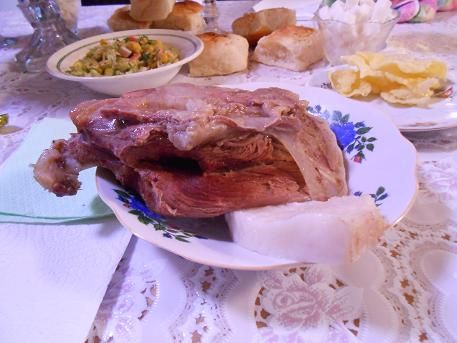 Shoulder and hunk-o-fat
Shoulder and hunk-o-fat
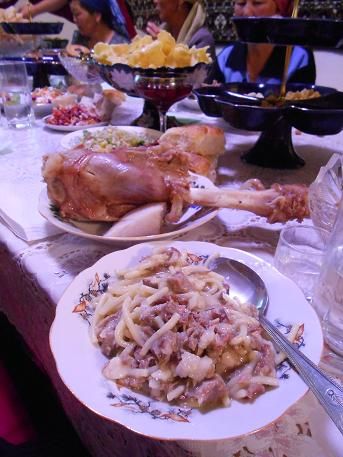 Aha! Here's the noodle-and-sheep portion.
Aha! Here's the noodle-and-sheep portion.
When the beshbarmak comes
out, it usually marks the imminent arrival of the end of the party. Guests are
not expected to eat all (or even most) of the huge hunk of meat they’re given.
In fact, guests are also given plastic bags into which to put the left-overs to
eat the following day (or days, depending).
On our way home from the
party, I asked Rakhat if it would be possible for me to get into the school on
the following day in order to retrieve my things as everything I needed in
order to lesson plan was locked inside. I was told that the school would be
locked up all day Friday, but that there would be a festival at the school on
Saturday, and that I would be able to reclaim my things then.

